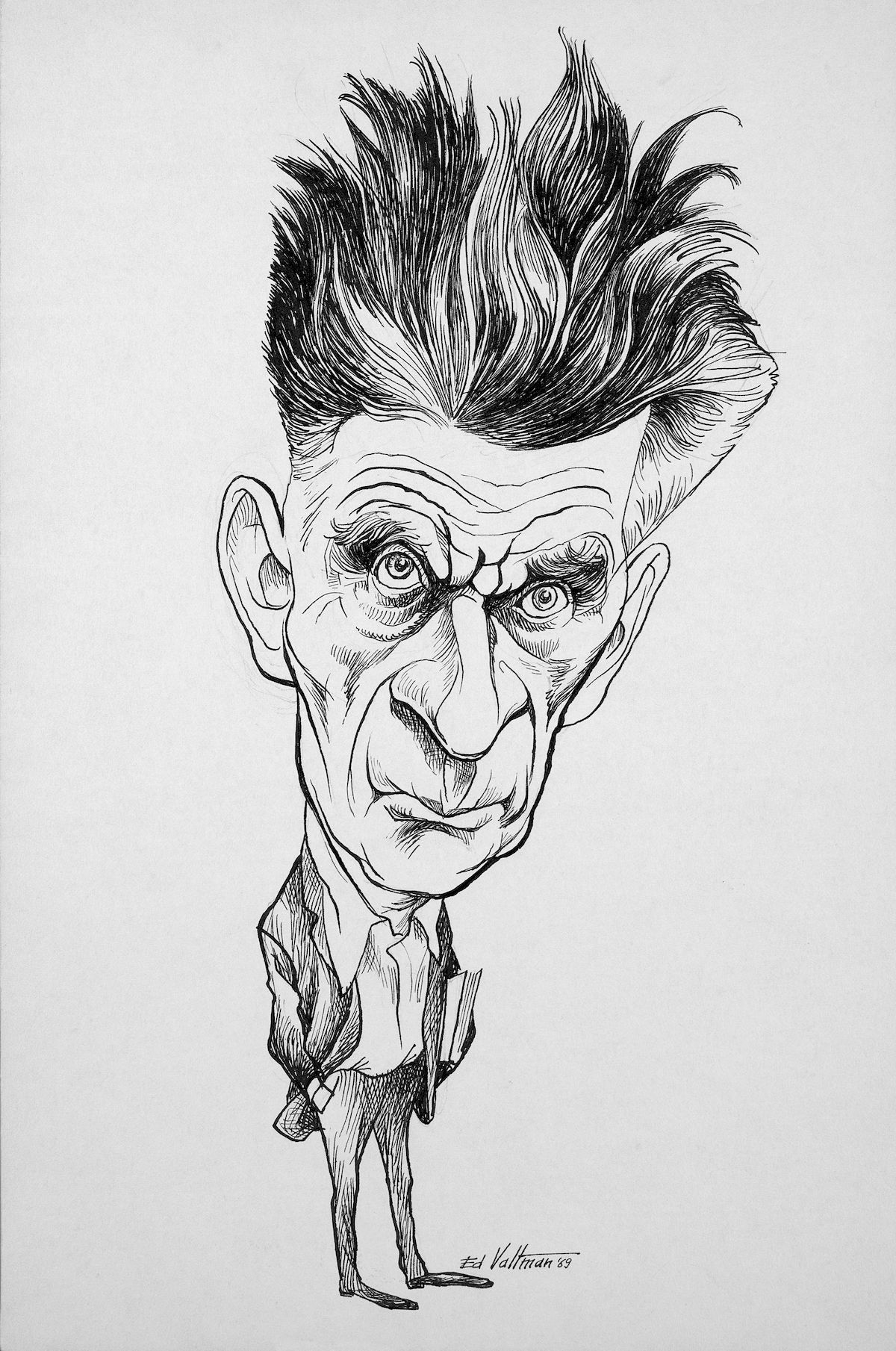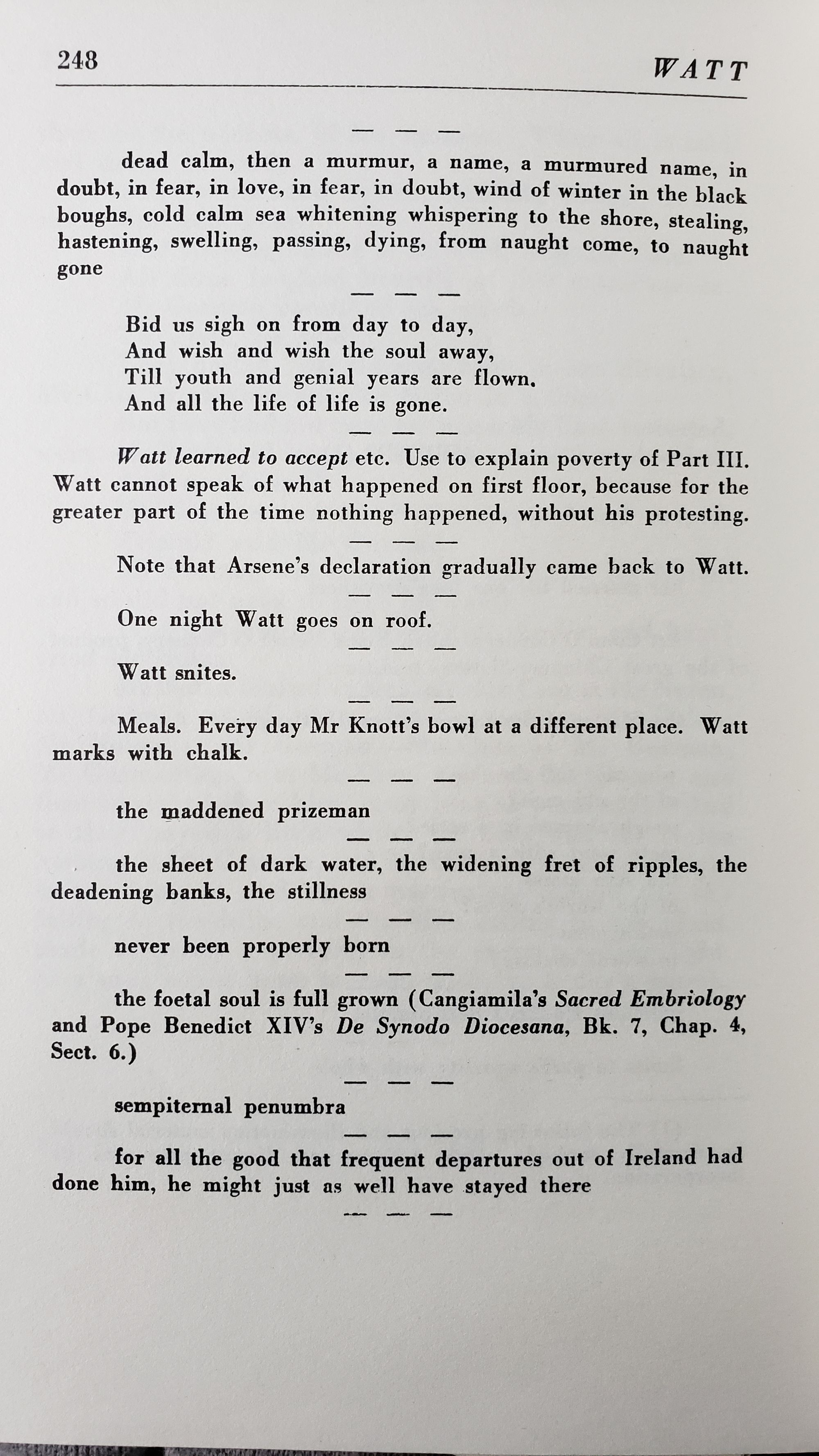
Fail Better: What Samuel Beckett Can Teach Us About Quitting
As staffing season rolls into contest season, the landscape of social media is saturated with algorithm-fueled posts about reps signed, record spec sales, and the entire internet making the top 1% of some list.
Well, except for you, the singular failure in a world full of triumph.
You pout. You wonder when your moment will come. You consider packing up the Prius and moving back to Iowa.
Then, after housing a few pints of fudge brownie chip, you seek validation.
Ever tried. Ever failed. No matter. Try again. Fail again. Fail better.
This is arguably the most famous quote from author, playwright, and stalwart literary weirdo Samuel Beckett. Rightfully. It’s a good one. “Fail Better” has been tacked to vision boards and inked on the waxed chests of tech entrepreneurs and professional athletes alike, a catalyzing slogan for the chronically resilient.
Out of context, quotes like this offer you a measure of reassurance—famous artists fail, too—and the motivation to dust off and press on. All you have to do is keep improving and everything will work out.
Oh, my precious little cherub, no.
Not to spit in your Wheaties, friend, but this line is an excerpt from a pretty dark story about the futility of trying. It’s not a call to action, it’s a warning.
Beckett was a nihilist. His work focused on such uplifting themes as isolation (social death), the absurdity of life (psychological death), and death (death death). He was hardly interested in encouraging his audience to persevere. Heck, Waiting for Godot is literally about waiting for an intervention that never comes.
The man was seriously obsessed with quitting.
That obsession, dear reader, is where you should draw your inspiration. Look, the Beckster has taken a lot of guff for being an experimentalist, a slinger of nonsense, a wicked step-uncle to those lousy beatniks. If he were alive today, he’d have a byline at VICE and only listen to vinyl.
But observe his process and you will see him as another stymied artist, aching to find truth. To give voice to something elusive. To communicate when language fails.
I confess to being a diehard fan of The Godotfather. I’ve read his entire catalog. I dig his whole grouchy, Irish vampire aesthetic. I thought I knew all there was to know about the man. Imagine my surprise when perusing the appendix of my dog-eared copy of Watt, I found a bit of myself. Unlike the polished final product that has been blessed by an editor and given the deference of a Great Published Work™, these draft notes show us the early stages when he was still putting the pieces together.
Here, he was actively grappling with structure and exposition (which, if you’ve ever read Watt, is a special kind of irony):

Tell me that doesn’t look like something you’ve scribbled on a sticky note at 3 a.m., only to read the next morning and whisper a confounded, “Sempiternal … what?” You can practically hear him mutter feverishly to himself, “Yeah, the chalk thing. That’ll come back around in Act II. It’s gold, Sammy boy, gold!”
This footnote is my favorite:

Translation: “This … went differently in the outline.”
The blank page tortured this guy so much, he wanted to dissect his own medium because it was an inadequate form of expression. He was never quite able to pin the magnificent, ethereal creature inside his head to paper, and that fact consumed him. By the end of his life, he concluded that it is impossible to translate a pure idea into words.
I’ll say that again: a writer devoted his entire life to beating language and lost. Been there, amirite?
Far from the inspiration porn this quote has become, its original intent was as a cry for help.
“No matter. Try again. Fail Again. Fail Better.” is not a directive to pick ourselves up and rally. It’s a plea from a man stuck on the hamster wheel of failure who just wants off the ride. He knows, no matter how many times he tries, he will only fail more spectacularly the next time. Though he is desperate to stop writing, he can’t bloody leave it alone.
Wow. Bleak.
Okay, don’t go gassing up the Prius just yet. I’m sorry I ruined your favorite quote and snapped your rose-colored glasses in half, but I had to break you down to build you up. This is Hollywood.
In his own gloomy way, Beckett reminds us that success is not a goal, it’s a secondary outcome. As is failure.
In that view, they are equally pointless rubrics. The only ghost worth chasing is the personal enigma that seems to sneak its way into everything you write, the eternal question that rattles around between your ribs.
Let go of the pressure to succeed, whatever form that takes for you, because life in all its absurdity is motivation enough.
*Feature Image: Samuel Beckett by Edmund S. Valtman / Wikimedia Commons

